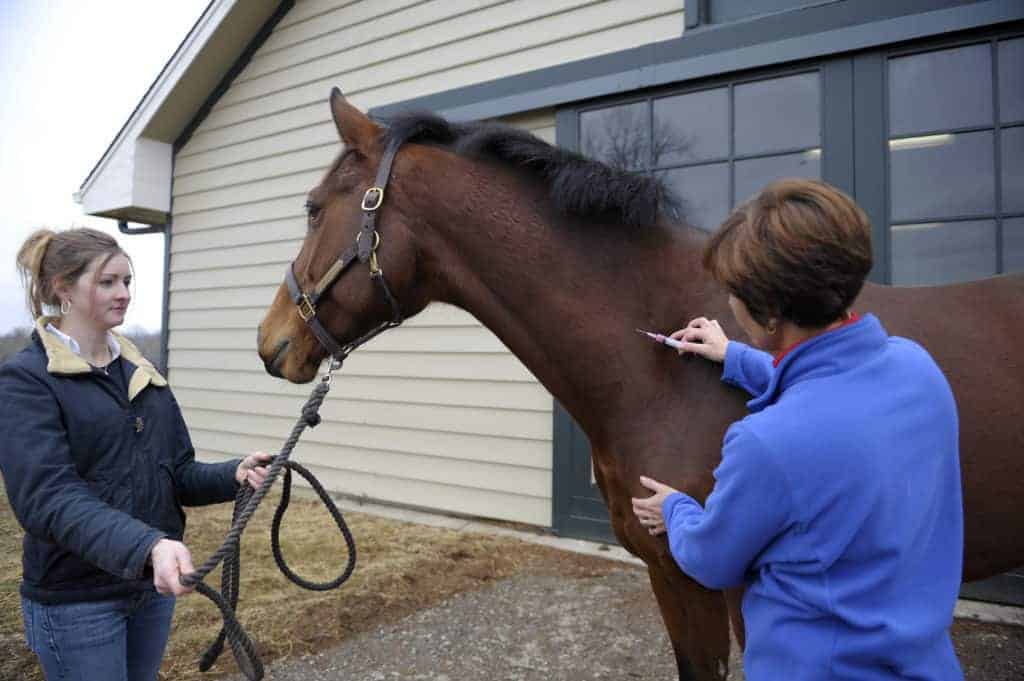
Wash. Owners Urged to Vaccinate Horses against WNV
Washington animal health officials are advising owners to make sure their horses are vaccinated against WNV.

Washington animal health officials are advising owners to make sure their horses are vaccinated against WNV.

In 2012, there were 20 cases of EEE and three cases of WNV in North Carolina horses reported.
Animal health officials are urging horse owners to vaccinate their animals for both EEE and WNV.
Reported diseases include contagious equine metritis, strangles, influenza, equine herpesvirus, and more.

Owners are urged to ensure their horses’ vaccination status is current for maximum protection against WNV.
Animal health officials are urging horse owners talk with vets about vaccinating against WNV, EEE, and rabies.
As the spring vaccination season approaches, consider have horses vaccinated against WNV and EEE.

One veterinarian reviewed the steps in triaging acute equine neurologic emergencies in the field.

The World Organization for Animal Health?s (OIE) standards help prevent the spread of infectious disease.
Dr. Roberta Dwyer shares thoughts on the evolution of the publication produced by UK and Lloyd’s of London.
Diseases reported include contagious equine metritis, equine herpesvirus, piroplasmosis, and more.

The discussion focused on four continuing problems: EHM, EPM, WNV, and other encephalitides.

At the most recent update, APHIS reported 609 equine WNV cases nationwide and 206 cases of equine EEE in 2012.
Equine herpesvirus-1, vesicular stomatitis, and West Nile virus were all confirmed in Colorado horses in 2012.

As of Nov. 6, the USGS indicated that the WNV and EEE totals had risen to 620 and 204, respectively.
A horse residing in Ben Hill County tested positive for the virus, officials announced Oct. 17.
Stay on top of the most recent Horse Health news with
"*" indicates required fields